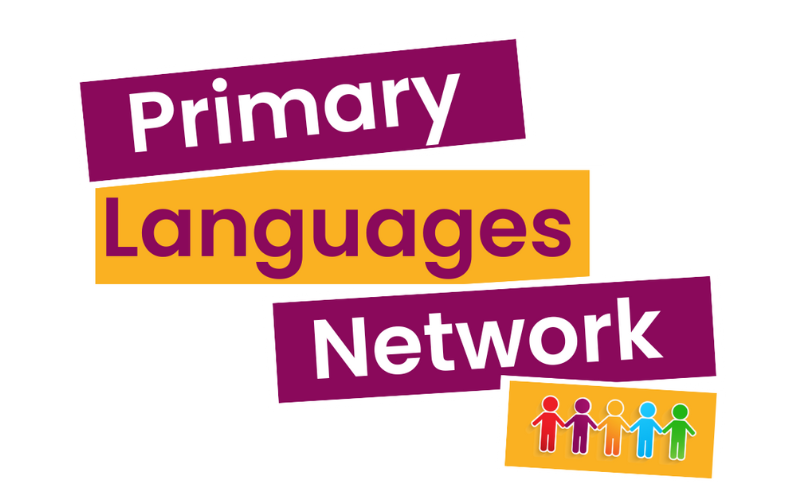I have called this blog "something old, something new" because the new DfE POS certainly has elements of the previous approach to primary language learning and also has laid down a requirement that there is joined up thinking between KS2 and KS3
There are few new tools but there are new challenges
There is little new direct advice but there are documents and measures we can use to see how the development of this new seven year language learning continuum develops in individual schools.Below is one possible solution to getting the message out there loud and clear and supporting/ being able then to offer strategic support to local colleagues who need to grapple the new challenges.
A few months ago one of our local schools shared with me a grid of subject self evaluation descriptors for foreign languages.
The grids were taken from the descriptors that some of us were already familiar with from the subject specific grade criteria on the OfSted website.
What I found interesting was that the school wanted to consider their own progress in primary language learning against this grid . It was probably the first time that the school had been made aware of self evaluation descriptors for primary language learning and the subject coordinator wanted to use these to monitor her own strategic progress and how well the school was addressing the requirements of language learning in the school.
At first I was concerned - concerned for those who haven't started and concerned for those who may find some of the descriptors challenging .
So I contacted Elaine Taylor, HMI,National Lead for Modern Languages, and asked her for her advice. Should I share these descriptors with my local network schools? Below is her initial response.
After reading her advice I decided that schools did need to be aware or reminded of these descriptors and that the primary colleagues I work with would want to have or be aware of strategic guidance.
What I didn't want to do was over egg or frighten schools as they grappled with first steps or next steps in primary language learning.
Below is a check list questionnaire I generated from some of the descriptors to help schools to consider whereabouts they would put themselves using OfSted criteria in the development of primary language learning.I have found that this has become a useful document to develop dialogue with SLT and coordinators and to support and guide colleagues to determine next steps.It works best where contact already exists and a good working relationship has been established.
I always share with them Elaine's comment above and make it clear that these are descriptors to be used as guidelines taken from a much larger document and should not currently be used in an inspection.It is also really important that as Elaine points out the descriptors are considered in an age appropriate context , which in my opinion means also a stage appropriate context too.
SLT are not daunted or frightened if you ask them to identify where they are currently and what their own next three or four steps from the questionnaire.
They welcome the fact that they have something on which to build their own individual school's strategic language learning development and feel that the descriptors allow for profitable exchanges,conversations and next steps between SLT and subject coordinators and then also between subject coordinators and staff.What is very important is that the school considers the points as appropriate to the school itself.We can offer solutions ,support,networking and we share the good practice we find so the document becomes a two way conversation and not purely a focus on what still needs to be done.In every school there are SLT,teachers, teaching assistants and governors- non specialist and specialist language teachers alike- who bring language knowledge, great ideas and good pedagogical approaches to language learning.In every school there are instances where guidance and support from in house,within the network or beyond is required.
Here are the main points and statements I selected.Certain points needed adaptation for example "inter" cultural understanding as the new DfE POS talks about culture rather than inter-cultural understanding.
There are few new tools but there are new challenges
There is little new direct advice but there are documents and measures we can use to see how the development of this new seven year language learning continuum develops in individual schools.Below is one possible solution to getting the message out there loud and clear and supporting/ being able then to offer strategic support to local colleagues who need to grapple the new challenges.
A few months ago one of our local schools shared with me a grid of subject self evaluation descriptors for foreign languages.
The grids were taken from the descriptors that some of us were already familiar with from the subject specific grade criteria on the OfSted website.
What I found interesting was that the school wanted to consider their own progress in primary language learning against this grid . It was probably the first time that the school had been made aware of self evaluation descriptors for primary language learning and the subject coordinator wanted to use these to monitor her own strategic progress and how well the school was addressing the requirements of language learning in the school.
At first I was concerned - concerned for those who haven't started and concerned for those who may find some of the descriptors challenging .
So I contacted Elaine Taylor, HMI,National Lead for Modern Languages, and asked her for her advice. Should I share these descriptors with my local network schools? Below is her initial response.
This document is nothing new. It is the subject specific grade criteria that have been around for years, but they have been presented differently - in a grid. They are free on the Ofsted website.
The statements are aspirational, but they have the health-warning that they be used as ‘appropriate to the age of the pupils concerned’. They are emphatically NOT to be used in inspections, so the interpretation of ‘appropriate’ is up to the school. The accompanying notes state: ‘It is important to note that this guidance is intended only to inform the judgements made by specialist inspectors carrying out subject survey visits. It is not for use on section 5 whole-school inspections.’ There are not likely to be any subject inspections in foundation subjects for the foreseeable future.
After reading her advice I decided that schools did need to be aware or reminded of these descriptors and that the primary colleagues I work with would want to have or be aware of strategic guidance.
What I didn't want to do was over egg or frighten schools as they grappled with first steps or next steps in primary language learning.
Below is a check list questionnaire I generated from some of the descriptors to help schools to consider whereabouts they would put themselves using OfSted criteria in the development of primary language learning.I have found that this has become a useful document to develop dialogue with SLT and coordinators and to support and guide colleagues to determine next steps.It works best where contact already exists and a good working relationship has been established.
I always share with them Elaine's comment above and make it clear that these are descriptors to be used as guidelines taken from a much larger document and should not currently be used in an inspection.It is also really important that as Elaine points out the descriptors are considered in an age appropriate context , which in my opinion means also a stage appropriate context too.
SLT are not daunted or frightened if you ask them to identify where they are currently and what their own next three or four steps from the questionnaire.
They welcome the fact that they have something on which to build their own individual school's strategic language learning development and feel that the descriptors allow for profitable exchanges,conversations and next steps between SLT and subject coordinators and then also between subject coordinators and staff.What is very important is that the school considers the points as appropriate to the school itself.We can offer solutions ,support,networking and we share the good practice we find so the document becomes a two way conversation and not purely a focus on what still needs to be done.In every school there are SLT,teachers, teaching assistants and governors- non specialist and specialist language teachers alike- who bring language knowledge, great ideas and good pedagogical approaches to language learning.In every school there are instances where guidance and support from in house,within the network or beyond is required.
Here are the main points and statements I selected.Certain points needed adaptation for example "inter" cultural understanding as the new DfE POS talks about culture rather than inter-cultural understanding.
Teachers communicate
the value of modern languages to pupils very effectively.
|
Planning is informed by
a good level of subject expertise.
|
Teachers routinely use
the target language for classroom communication and generally insist on
pupils responding in the language.
|
Pupils willingly
participate in activities that require them to use the language to
communicate orally and in writing as a result of good teaching.
|
Text is used well to
improve pupils’ pronunciation and as a ‘cue’ for speaking and writing.
Imaginative use is made of a breadth of listening materials to develop
pupils’ understanding of the spoken word.
|
Reading is used to
develop (inter)cultural understanding and pupils read for pleasure.
|
Curriculum planning is
responsive to pupils’ prior learning, including for pupils transferring from primary
to secondary schools.
|
The curriculum is
broad, balanced and well informed by current initiatives in modern languages .
|
Curriculum planning
ensures pupils have opportunities to develop all four skills equally. All
pupils are provided with first-hand experience of the culture of the country
where the language is spoken through visits or visitors or through the use of
ICT.
|
Pupils’ learning is
enhanced through productive links with other subjects.
|
Leadership is
well-informed by current developments in the subject.
|
Subject leaders
encourage other stakeholders to make a positive contribution to the promotion
of language learning.
|
The subject makes a
good contribution to whole-school priorities, including literacy and numeracy
policies.
|
The descriptors in yellow create purposeful discussion from the outset:
- Are SLT aware of the new DfE POS and the demands of the new curriculum?
- How can we make all staff aware of the importance of learning an language. How can we support staff to find ways to celebrate what their children are learning in a language even if they themselves are the not the deliverer of the language teaching and learning?
- How can all staff promote language learning and be aware of the activities and progress the children make?(This can be in the way they watch, listen or ask the children to share an activity they have practised with a language teacher or because they themselves are teaching the language learning).
- How an the learning environment in the classrooms promote languages? Perhaps this will be appropriate for the age ,stage and teacher's approach through display, reading corner access to text,use of songs and games as five minute follow up activities, revisiting spoken language with sound files, class assembly focuses etc.This is important in my opinion particularly if the school opts for a visiting teacher to deliver primary languages.
- Are the teachers of language learning in school aware that children need to make equal progress in speaking and writing in the new DfE POS.Do the teachers feel confident to explain and teach grammar in an age and stage appropriate manner.What will progress look like in language learning and how will children , teachers and SLT be made aware of progress?
- What does substantial progress should look like in pupils' learning?
- Both primary and high schools need to take stock.What has happened before?What languages might they meet in KS3 and KS4 ?Are schools aware at KS2 and KS3 that in primary language learning is asked to lay foundations of language learning and at KS3 colleagues should build upon the foundations even if there is a change to another language?
- What skill development is taking place ? Do schools have guidance to support the development of skills in a language learner and where can support be accessed and utilised?
This is dialogue document I am finding generates purposeful discussion and allows primary schools ownership of next steps.Used properly and strategically it can allow the school to move forward with their implementation of language learning.It's a document which needs to be shared with staff and with visiting teachers and language assistants to enable a clear path in language teaching and learning to develop.
It's about using what exists to support schools to find ways forward and in lots of cases to celebrate what they are already striving to achieve.
So how do we work together to address or enhance descriptors above? Take a look here
It's about using what exists to support schools to find ways forward and in lots of cases to celebrate what they are already striving to achieve.
So how do we work together to address or enhance descriptors above? Take a look here













